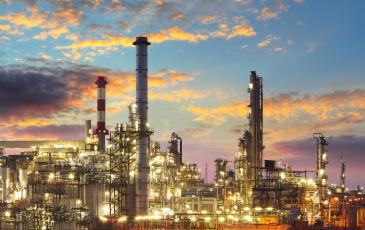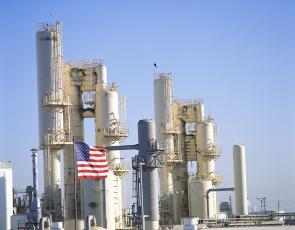Tomorrow morning the House of Representatives will take up the Inflation Reduction Act of 2022 (IRA). This 700+ page bill covers a multitude of tax, energy, climate and other issues that impact the refining and petrochemical industries. After careful review, AFPM opposes this legislation as written.
AFPM evaluated the bill against our core principles, and specifically whether the legislation would support strong U.S. refining and petrochemical industries and whether it pursued emissions reductions in a market-based and cost-effective manner. Unfortunately, the IRA falls short of these goals. AFPM is specifically concerned with the following provisions:
- The IRA inexplicably reinstates a tax on American energy. The legislation enacts a multi-billion-dollar tax on crude oil without offering a rationale for raising taxes in today’s high-price energy and weakened economic environment. This appears to be purely a punitive targeted tax against American fuel manufacturers and liquid fuel consumers.
- The IRA includes a new natural gas tax that will make it more expensive to manufacture goods in the United States. Natural gas is an important feedstock and source of competitive advantage for both U.S. fuel refiners and petrochemical manufacturers. The IRA modifies the methane fee originally proposed last fall, and Congress has not evaluated the impact this change will have on natural gas consumers at the industrial manufacturing or household levels. Congress should take a hard look at the potential impacts of any tax provision before enacting it.
- The IRA punishes shareholders by taxing stock buybacks. One of the ways firms can deliver on their fiduciary responsibility to shareholders is through stock buybacks. Buybacks are a common practice across industries meant to increase the value of individual company shares, owned by millions of people across society. Last minute changes to the IRA will impose a new tax on buybacks, siphoning value away from shareholders, including retirees, 401k investors, pension funds and others.
- The IRA expands some of the most inefficient policies and tax credits aimed at emissions reduction. Electric vehicle incentives are some of the most expensive and least effective approaches to reduce carbon emissions. The original EV tax credit was intended to jump start a relatively newer industry and then phase out as the industry matured and increased sales. This has happened for a number of EVs, and automakers themselves have indicated the tax credit isn’t necessary for sales. Although the IRA establishes some commonsense conditions for claiming the credit, Congress should simply eliminate the credit altogether.
AFPM has other concerns with the IRA, including how its tax credit system is structured, various grant programs and the general lack of recognition it pays to the critical role liquid fuels play, and will continue to play, in both U.S. energy security and a cleaner energy future.
AFPM recognizes and appreciates Senator Manchin’s and others’ efforts to craft an all-of-the-above energy and climate bill. The legislation reflects improvements compared to the original House bill, and provisions such as support for carbon capture and sequestration are worthy inclusions. On balance, however, this legislation disadvantages U.S. refiners and liquid fuels.
AFPM greatly appreciates efforts by many in the Republican conference to improve this bill for the benefit of consumers and American energy security. It is unfortunate that this process was closed to many bipartisan ideas and that so many commonsense amendments have been rejected.
Looking forward, AFPM is committed to working with policymakers to develop policies that can meet both our energy needs and reduce emissions. We are also hopeful that the permitting reform sought by Senator Manchin and promised as part of the broader legislative agreement will come to fruition as it will help to expand and modernize U.S. infrastructure of all kinds, including the types of infrastructure critical to the refining and petrochemical industries.
The American Fuel & Petrochemical Manufacturers (AFPM) is the leading trade association representing the makers of the fuels that keep us moving, the petrochemicals that are the essential building blocks for modern life, and the midstream companies that get our feedstocks and products where they need to go. We make the products that make life better, safer and more sustainable — we make progress.


